- Welcome to Jewelspride Bengals
- SHOP
- Jewelspride Designs
- Life is Better With Bengals - Blog Articles
-
KITTENS
- Links
- SHOP
- Bengal Care - Everything You Need to Know
- About Us
- Catios and Cat Posts!
- Cat Boarding!
- ** Queens **
- ** Studs **
- Our Cattery and Visits
- Cat Wheels
- **NEW** Jewelspride Alumni
- Photo Gallery & Videos
- Uno's World
- Contact Us
- *New! Cat TV!*
- New Page
- Custom Gifts by Carmen
|
As our feline companions age, their needs change. Understanding what is considered old age for a cat and how to properly care for a senior cat is crucial for ensuring that they live a happy and comfortable life. 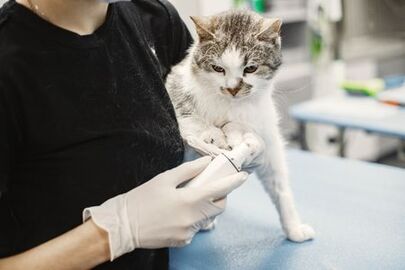 When a cat reaches the age of 15, they are considered to be in their senior years. During this stage of life, it is important to provide extra care and attention to ensure that they are comfortable and happy. One of the biggest concerns for senior cats is maintaining their health, so regular visits to the vet are essential. Many people wonder if senior cats are easy to take care of. The truth is, while they may require a bit more attention and care than younger cats, they can still be loving and affectionate companions. Providing them with a comfortable living environment, a healthy diet, and regular check-ups with the vet can help them age gracefully. Many people also wonder about the age of their cats in human years. A 14 year old cat is roughly equivalent to a 72 year old human. While 20 is considered to be a good age for a cat, it is important to keep in mind that each cat is different and will have their own unique life expectancy. 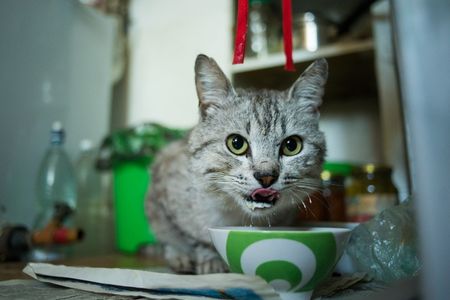 An important aspect of caring for a senior cat is providing them with a proper diet. As cats age, they may have different nutritional needs. Your vet can recommend a senior-specific diet that is formulated to meet the needs of older cats. These diets often contain more protein, fewer calories, and added vitamins and minerals to support the aging process. It is also important to monitor your cat's weight, as senior cats are more prone to obesity which can lead to other health issues. A cat that has been eating a raw diet it's whole life, should continue eating this diet into the senior years, as it's the healthiest diet for a cat, and a cat eating this diet will not gain excess weight and will thrive on the pure protein and nutrients that a raw species appropriate diet will automatically provide them with. 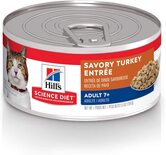 Many cat owners wonder whether they should feed their senior cats wet or dry food. The answer to this question will vary depending on the cat's individual needs and preferences. However, it is generally recommended to feed a wet diet (raw or canned) as older cats may have a harder time eating dry food and also because it provides essential moisture content. 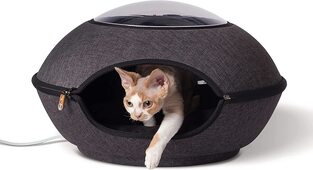 So, what makes senior cats happy? Keeping them mentally and physically stimulated is key. Interactive toys, scratching posts, and comfortable beds can all help keep them active and engaged. Additionally, providing them with a warm and cozy environment can also make them feel content. Providing your senior cat with a comfortable living environment is also crucial. As cats age, they may have trouble climbing or jumping, so it's important to provide them with a comfortable bed at ground level, and plenty of warm blankets or cushions to snuggle up in. Cats also enjoy a warm and cozy spot to rest, so consider providing them with a heated bed or pad. 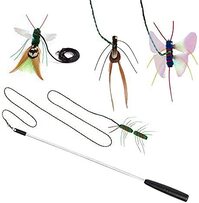 In terms of activity, it's important to provide your senior cat with plenty of opportunities for exercise and play, but be mindful that they may not have the energy levels of a younger cat. Short play sessions or interactive toys may be more appropriate. Consider providing your senior cat with a scratching post or cardboard box to keep them mentally and physically stimulated. 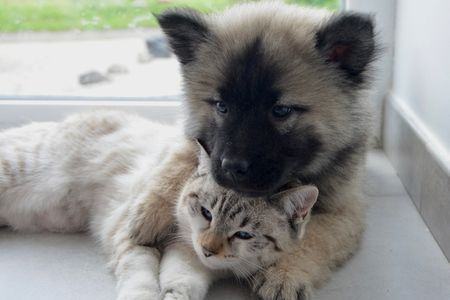 Many people also wonder if older cats get lonely. The answer is yes, they can. While cats are independent creatures, they still crave companionship and interaction. If you are concerned that your senior cat is feeling lonely, consider getting them a companion or spending more time interacting with them. When it comes to caring for a 17 year old cat, it is important to keep in mind that they may have decreased mobility and may require assistance with grooming and other daily tasks. As cats age, they may also become more prone to certain health issues, such as kidney disease or arthritis. 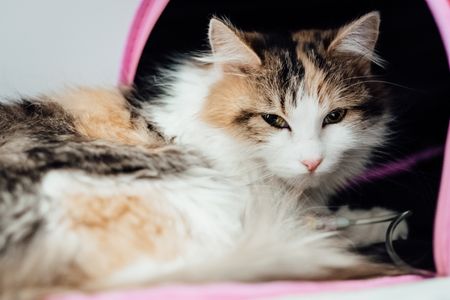 Senior cats may also experience changes in their behavior such as increased sleeping, decreased grooming or problems with litter box use. These changes can be due to a variety of reasons such as arthritis or dental issues. If you notice any changes in your senior cat's behavior, talk to your vet to rule out any underlying medical conditions and to come up with a plan to manage them. One common issue that many cat owners face is their senior cats meowing excessively. This can be due to a variety of reasons, such as changes in vision or hearing, or simply because they are trying to communicate their needs. If your 17 year old cat is meowing excessively, consult with your vet to rule out any underlying health issues. 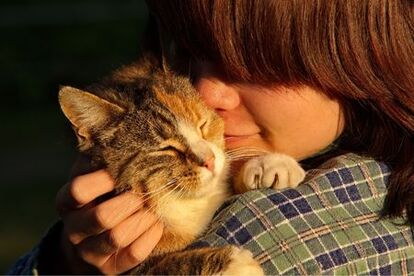 Provide your senior cat with a calm and quiet environment, as loud noises and too much commotion can cause them stress. As cats age, they may also become more sensitive to changes in temperature and may prefer a warm and cozy environment. In conclusion, while caring for a 15 year old cat or older cat may require some extra attention and care, they can still be loving and affectionate companions. Providing them with a comfortable living environment, a healthy diet, and regular check-ups with the vet can help them age gracefully. Remember to keep in mind that each cat is unique and their needs may vary as they age. A senior cat still has a lot of love and joy to give, and they deserve to live a happy and comfortable life.
0 Comments
Leave a Reply. |
AuthorCarmen Klassen, Owner of Jewelspride Bengals Archives
June 2023
Categories
All
|
Copyright © 2024 Jewelspride Cattery and Carmen Klassen
- Welcome to Jewelspride Bengals
- SHOP
- Jewelspride Designs
- Life is Better With Bengals - Blog Articles
-
KITTENS
- Links
- SHOP
- Bengal Care - Everything You Need to Know
- About Us
- Catios and Cat Posts!
- Cat Boarding!
- ** Queens **
- ** Studs **
- Our Cattery and Visits
- Cat Wheels
- **NEW** Jewelspride Alumni
- Photo Gallery & Videos
- Uno's World
- Contact Us
- *New! Cat TV!*
- New Page
- Custom Gifts by Carmen
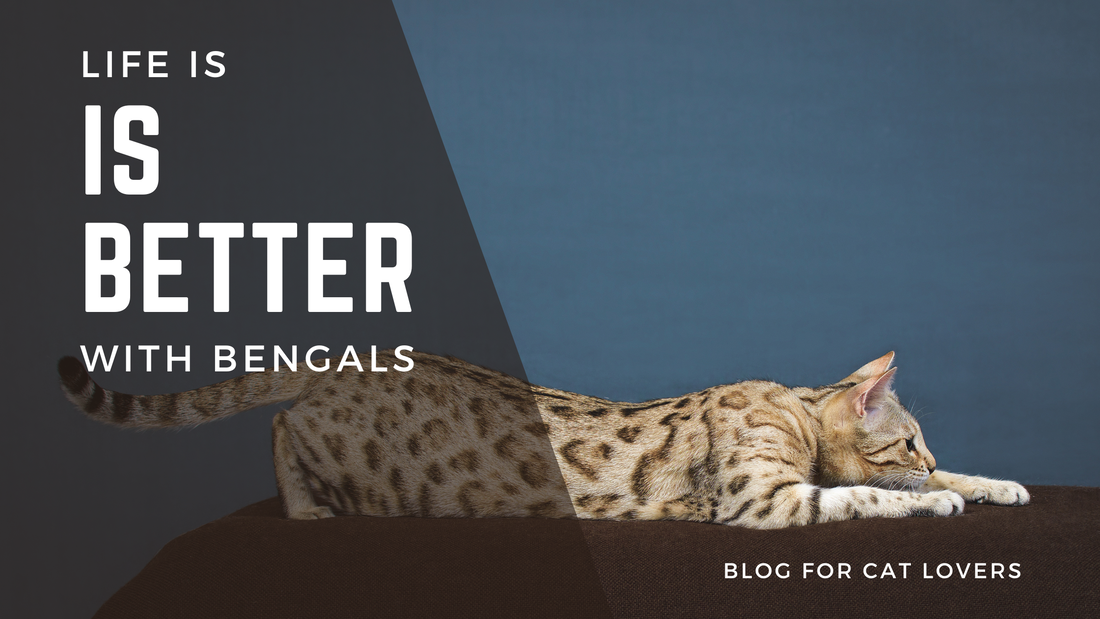
 RSS Feed
RSS Feed




